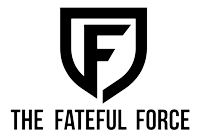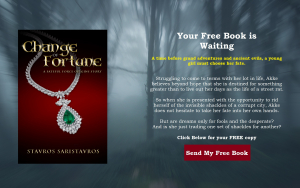
23 Jun Getting to know DnD Skills: Mad Hax & Fat Stax
A wise dog once said: “Suckin’ at something is the first step to being sorta good at something.” In Dungeons and Dragons, that first step includes picking what skills your character knows.
Tailoring your character to your playstyle means knowing what skills are available to you, which ones play well together, and which ones maybe just grab your interest because you want to try out how they work.
How do DND skills work?
With D&D, how it works is that you have ability scores, which is a measure of your overall ability in a certain category of life. These large and general categories form the basis for how well you can perform skills which fall into that category.
The hierarchy of the pyramid, from base to top is: Ability, Skill, Specialization.
Cooking, sushi making, preparing fugu without it killing your customers. You must be able to cook before you can do the other two, right? Same with D&D skills.
How do you roll skills?
When you attempt to do something, your DM will tell you what ability and skill is governing the modifiers to your roll. Let’s start at the base of the pyramid, with your ability score.
What do ability scores mean?
Strength is your raw physical force, how well you can use your bodily power and athletic training. How hard you can punch something.
Dexterity is a measure of your agility, reflexes, and balance. How well you can dodge a punch.
Constitution is your health, stamina, and your overall vitality. How getting punched affects you.
Intelligence is your mental acuity, your accuracy of recall, and your ability to reason. How well you can know that insulting a tiefling’s father will result in getting punched.
Wisdom is how well attuned you are to the world around you, how perceptive you are, and how well your intuition functions. How you are aware that that sign above the bar is a symbol of tiefling solidarity, and that the bar staff and other patrons are closely watching your interaction with their friend.
Charisma is how effectively you can interact with others, your confidence and eloquence, how charming or how commanding you are. How you can attempt to influence someone. How you are able to talk your way out of a 20-on-1 bar brawl with a band of tiefling sympathizers after you just insulted their lieutenant’s father.
How many skills are there in DND?
Your ability scores will add (or subtract, but that’s not such a great idea) from your total when you roll checks on a skill. Your DM might be able to guide you in this on the day, but it’s good to know the basics.
The basics:
Str: Athletics checks
Dex: Acrobatics, sleight of hand, and stealth checks
Int: Arcana, history, investigation, nature, and religion checks
Wis: Animal handling, insight, medicine, perception, and survival checks
Cha: Deception, intimidation, performance, and persuasion checks
There are more skills completely dependent on what race and class you are as well, these are just the basic ones that every player can draw from.
What is the arcana skill used for in D&D? What is wisdom used for in D&D?
These are common questions and you’re not alone in wondering! The different ability scores all have their roles in letting you do what you want to do.
Strength includes the ability to swim or stay afloat in treacherous currents, climbing, jumping, trying to knock an opponent do
n with your body, holding onto the dock while a foe is trying to pull you underwater.
Dexterity is about acrobatic stunts including dives, rolls, somersaults, the act of legerdemain or manual trickery (sleight of hand), standing upright on a rocking ship’s deck, keeping your feet in a tricky setting, planting something on someone, hiding in the shadows of an alley, being able to conceal yourself from enemies, conceal an object on your person, being able to sneak up on someone, or escaping enemies; slink past guards, slip away, without being seen or heard, run away without being noticed, or sneak around natural hazards.
Intelligence includes knowledge of holy symbols, plants and animals, being able to identify spells and magic items. Some complex traps even require intelligence to discover or discern.
Wisdom includes being able to notice clues, diagnose an illness, navigating natural hazards, seeing a secret door, animal handling like how to ride a horse, searching out a lie, spotting a hidden object, knowing someone’s true intentions, hearing a conversation through a closed door, being able to read someone or a group of people and know if they are acting in good faith. And like intelligence it can be used to spot some traps.
Charisma includes being able to attempt to influence someone through overt threats, hostile actions and physical violence, telling a lie, general proper etiquette, enrapture an audience with music, dance, acting, and general performance, con a merchant, relying on your social graces or good nature to get you where you want to go.
As you can see, each ability score has its own realm of specialty, but its not uncommon for some skills to overlap as well as different skills can be used to reach the same end goal.
For instance if a creature wishes to grapple you, you can use either your str or dexterity to avoid being ensnared.
It’s hard to know what to put points into, but everything has a purpose.
How do DND skills work?
Which skill you use when making a skill check will depend on your approach to the situation, how you are going to try to solve the task or problem at hand.
Are you going to swing back at the tiefling lieutenant and try to fight your way through a 20-on-1 bar brawl? I mean, you could try… But if you want to try and talk him down first, your DM will want to know the tone of your attempt.
What are your options?
You’re in the charisma wheelhouse, we know that much. But are you going to lie to get out of it (“I was paid to say that to you!”)? Or perhaps intimidate the lieutenant (“leave it mate, unless you know a healer I can call right now to get over here for when you’re laying dying in about two minutes”)? Perform your way into changing the tone of the situation (“aha, see this is just like the ballad of Teef the Tiefling, let me sing it for youuuu”)? Or try a persuasion check to convince him not to liberate your head from your body (“I can make it worth your while man, I need someone like you on my next gig”)?
Get specific
From there if you have any proficiencies that rely on those skills, you can narrow down your approach even further to get yourself out of a tricky situation.
You might tell your DM “I’m going to try to play this off as a test; I want to recruit him to join us on our mission tomorrow, and I needed to see his reaction”. The DM will then ask you for a persuasion check.
What is a skill proficiency?
Being proficient in a skill means you get a bonus added onto rolls that use a skill which you are particularly good at (proficient in).
You can lean into your strengths when choosing a course of action; try to massage a situation into being able to make roles on checks you have bonuses to.
As you get more experience, you become proficient in the things you do. Regardless of race or class, you begin with a base of +2 to your proficiency bonus. This goes up to +3 at level 5, +4 at level 9, +5 at 13 and finally +6 when you reach level 17 (hardcore!).
How many skills can you be proficient in?
This is dependent on your race, class, and background.
For instance, a rogue gets 4 skill proficiencies, with a free proficiency upgrade on 2 skills. Elves have a proficiency: Keen Senses which gives them a boost to perception. A criminal background gives proficiencies in deception and stealth.
So an Elf who is a rogue with a criminal background has 7 proficiencies, with two of them being upgraded to expert level. That’s a lot of things to be good at!
Another example is a dwarf fighter. They would start with 2 skill proficiencies. With a soldier background, that adds another 2.
How many skill points do you start with in D&D?
It depends on how you build your character. Go through character creation and the Player’s Handbook will guide you.
What are some specializations?
Just because you’re good at music doesn’t mean you can play the harpsichord, right? Same with D&D. You might be good at animal handling, but you are really good at reading bears, or riding elephants.
- Animal Handling: Riding animals, handling specific kinds of animals, animal husbandry, veterinarian medicine, snake charming for fun and profit
- Arcana: Specific schools of magic, magical items, planes of existence, spellcraft, children’s birthday parties
- Athletics: Bouldering, free climbing, running, swimming, wrestling, swinging from a chandelier
- Acrobatics: Stunts, balancing, diving, tumbling, performing as part of the D&D equivalent of the Flying Graysons
- Deception: Grifting, gambling, the long con, misdirection, the ability to take horses ‘just out for a test ride’ and booking it for the next town over where you will sell your new steed
- History: Regional, local, global, military, fictional, alternate history short stories your character writes in their free time and sells at markets
- Insight: Psychology, lie detection, ability to discern people’s intentions.
- Intimidation: Interrogation, threats, ability to use your body as a deterrent against someone starting something
- Investigation: Searching, engineering, forensics, really good knowledge of the D&D equivalent of the Dewey Decimal System for looking things up in databases and libraries
- Medicine: Surgery, knowledge of diseases and their treatments, magical injuries and their remedies, ability to keep your party healthy and vital by mixing vitamins and other health concoctions
- Nature: Knowledge of (and being able to predict) weather patterns, animals and their ways, plants and their ways, terrain and how to navigate it, the ability to narrate wildlife in a compelling yet soothing tone
- Perception: A focus on each of your senses: hearing, sight, smell, taste, touch; arguments can be made for other senses if you want to get techy (magnetic fields, anatidaephobia or the keen ability to know when a duck is watching you, etc)
- Performance: Storytelling, acting, dance, spoken word poetry, musical instruments of certain kinds, ability to quote famous books and plays by heart
- Persuasion: Etiquette, relationships, social dynamic manipulation, salesmanship, getting the room at a discount
- Religion: Cults, religious texts, specific gods, knowledge of religious rites and festivals, being able to greet people with religiously appropriate phrases
- Sleight of Hand: Concealment, picking pockets, nonmagical illusions, things that may get you burnt at the stake for being a witch etc
- Survival: Foraging, terrain types, tracking, specific fungi knowledge enough to make a fortune from a season picking chanterelles or truffles
- Stealth: Hiding, moving silently, making silent signals, opening crinkly bags of chips without a dog hearing
Some things might fall into more than one category, and it’s up to you and your DM to decide what motivations are behind the action, and what result you are looking for.
Practicalities
I knew a dragonborn bard who specialized in being able to make wooden flutes, with passable knowledge of how to repair bagpipes. This came in handy when she used her breath weapon flames to intimidate opponents by shooting flames out of her flute or bagpipes in a bardly way.
This left her with lots of destroyed instruments, and she knew she had to get good at making more if she wasn’t going to spend all her hard won gp replacing the smouldering wreckage of her former flutes and pipes.
This also let her have good skill at general woodworking and carving, something she used to craft wooden figurines in her downtime, which she sold and traded with.
Be techy, be practical, be flavorful, be inventive. And as always, good luck; have fun!
Stavros
The Tome of Syyx – A D&D Style Epic Fantasy
If you are a reader that enjoys both D&D and Epic Fantasy, then The Tome of Syyx is the book for you!
Tasked with helping secure the future of the town of Sanctuary, four young adventurers soon discover that armies of orcs and hobgoblins are far from the only threats to peace on the frontier.
Ancient evils stir. Deals must be brokered. But can everyone be trusted?









No Comments